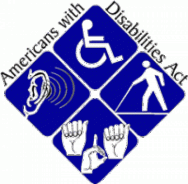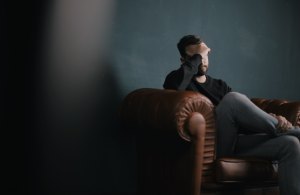
ADA Accommodations in College
 Because I often have parents asking me about accommodations for students with disabilities in college, I organized a workshop led by Bryan College’s Academic Success Center Director and ADA Coordinator, Kristi Strode. What I discovered while attending the workshop is that accommodations are regulated by the Americans with Disabilities Act of 1990/Rehabilitation Act of 1973 – Section 504. There are also other laws that come into play when serving students with disabilities: the Fair Housing Act regarding campus housing needs and FERPA regarding the extremely important issue of confidentiality
Because I often have parents asking me about accommodations for students with disabilities in college, I organized a workshop led by Bryan College’s Academic Success Center Director and ADA Coordinator, Kristi Strode. What I discovered while attending the workshop is that accommodations are regulated by the Americans with Disabilities Act of 1990/Rehabilitation Act of 1973 – Section 504. There are also other laws that come into play when serving students with disabilities: the Fair Housing Act regarding campus housing needs and FERPA regarding the extremely important issue of confidentiality
The governing statutes provide many mandates for colleges; however, in many instances, the law is ambiguous and open to interpretation. Each college must interpret and incorporate procedures for assisting students with diagnosed disabilities, and Bryan College strives to not only meet the law’s requirements but to also provide services in an excellent fashion. We purpose to serve all students with integrity and compassion in order that those students may have tools to succeed in their academics so they may become servants of Christ in the world, per Bryan College’s mission statement.
When students with disabilities come to college and seek services through the college’s ADA Services department, they can expect to receive reasonable accommodations in classes. While changing class requirements is never considered a reasonable accommodation, there are other ways of providing students with tools to succeed (accommodations) that will help. The traditional and typical accommodations for students with disabilities are as follows:
- Extended testing time
- Quiet testing area
- Tests read aloud
- Audio text books (when available)
 If students are not satisfied with the services they receive through Bryan College’s ADA Services, there is a grievance procedure in place. On our campus, an ADA Compliance Committee is charged with weighing any grievances that come forward. Kristi has also developed a manual for compliance with the ADA mandates.
If students are not satisfied with the services they receive through Bryan College’s ADA Services, there is a grievance procedure in place. On our campus, an ADA Compliance Committee is charged with weighing any grievances that come forward. Kristi has also developed a manual for compliance with the ADA mandates.
At Bryan College, there are an average of 25 students at any time who have diagnosed disabilities and are receiving services. For a student to receive accommodations, the diagnosis must be official, coming from a professional qualified to evaluate the disability. The student’s disability needs to have been diagnosed within the past two to three years. Disabilities may include (but not be limited to): anxiety, depression, ADHD, dyslexia, behavioral health issues and PTSD.
The paperwork required to receive services is as follows:
- The application for services
- An ADA Informed Consent Document
- Applicable releases of information for faculty, staff, and family members
- A letter from a diagnosing professional
The letter of diagnosis should:
- Be explained on letterhead stationary
- Be signed by the professional making the diagnosis
- Include the diagnosis
- Explain the current treatment as well as on-going treatment necessary
- Include recommendations for classroom treatment
- Be dated with a date that is within two or three years of the student entering college
 Once a student on campus has met with Kristi and figured out a plan for accommodations, then that student must present the needed accommodations through what is known as a Syllabus Addendum to their professors. Kristi promotes self-advocacy, but she will work with both the students and professors.
Once a student on campus has met with Kristi and figured out a plan for accommodations, then that student must present the needed accommodations through what is known as a Syllabus Addendum to their professors. Kristi promotes self-advocacy, but she will work with both the students and professors.
Also, Kristi can provide a potential listing of professionals who are able to test and diagnose disabilities for $75. Her phone number is as follows: 423-580-2284 (cell)